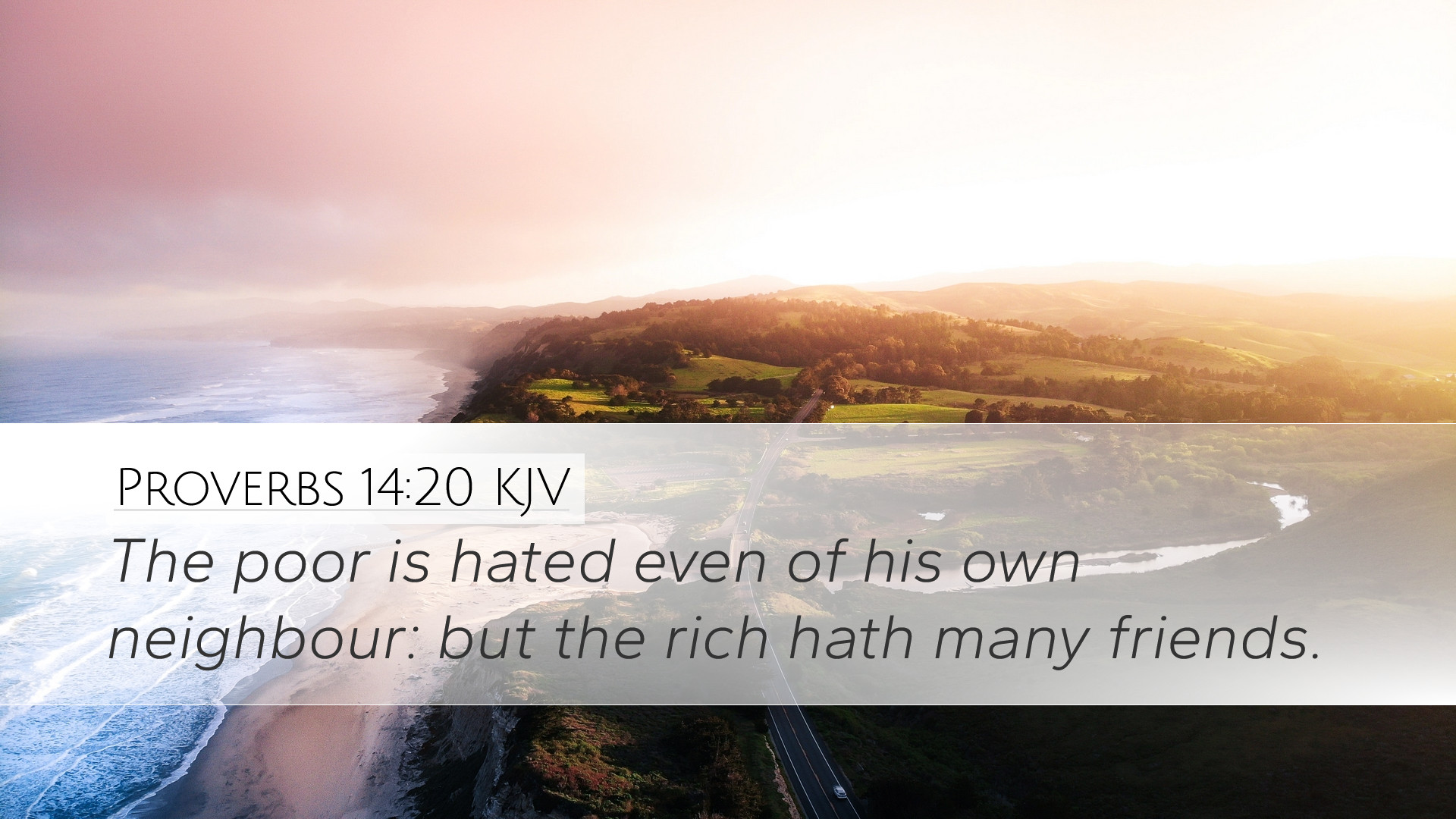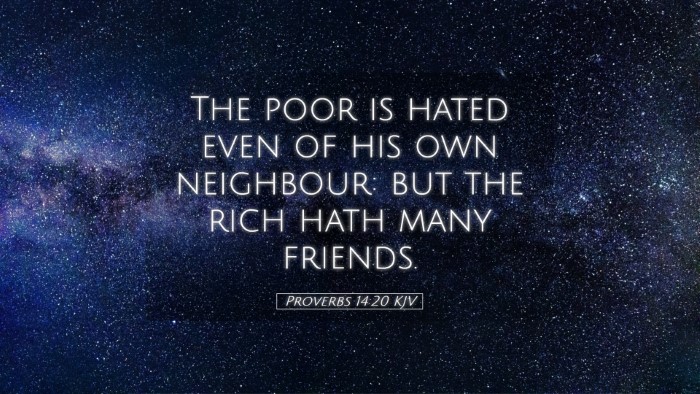Commentary on Proverbs 14:20
Verse (Proverbs 14:20, ESV): "The poor is disliked even by his neighbor, but the rich has many friends."
This verse succinctly captures the societal realities regarding wealth and poverty. Like many Proverbs, it is a concise observation about human nature and social dynamics. The following commentary synthesizes insights from prominent public domain theological works.
Contextual Analysis
The Book of Proverbs is a collection of wise sayings, primarily attributed to King Solomon, aimed at imparting wisdom and understanding for practical living. Chapter 14 focuses on the distinctions between the wise and the foolish, the righteous and the wicked, and it is within this context that we find verse 20.
Observations from Notable Commentaries
-
Matthew Henry:
Henry emphasizes the theme of social dynamics in his commentary, observing that poverty often leads to disdain and rejection from others. He states that the “poor” are looked down upon not only because of their financial status but also due to the stigma associated with it. In contrast, he notes that wealth tends to attract friendships, often for the wrong reasons. Wealth can create superficial relationships where individuals may be drawn to the benefits rather than the person.
-
Albert Barnes:
Barnes comments on the societal contradictions presented in this verse. He elaborates that the poor are often isolated and marginalized, facing scorn from their neighbors due to envy or misunderstanding, whereas the rich gain favor and attention, which often leads to an inflated sense of self-worth in the context of relationships. He highlights that this dynamic is a reflection of human sinfulness and materialism.
-
Adam Clarke:
Clarke provides a more pastoral perspective, illustrating the emotional and spiritual implications of this wealth disparity. He points out that the affection of “many friends” may not be true friendship; rather could be a mere facade. Clarke indicates that true compassion and empathy should arise regardless of wealth. He encourages believers to look beyond material possessions and strive for authentic relationships built on mutual respect and love.
Thematic Implications
This verse raises fundamental questions about human nature, relationships, and the value placed on individuals in society based on their economic status. Key themes include:
-
Prejudice Against the Poor:
The dislike for the poor suggests a societal tendency to value people based on their wealth rather than their character. This observation challenges readers to reflect on their biases and behavior towards those who are economically disadvantaged.
-
The Superficial Nature of Wealthy Friendships:
While the rich may have numerous friends, this friendship often lacks depth and sincerity. This prompts a deeper examination of the motives behind relationships and the importance of cultivating genuine connections that honor every individual, irrespective of their financial standing.
-
The Wisdom of True Value:
This proverb encourages readers to reassess their definitions of worth and investment in relationships. True value lies in character and faithfulness, not material wealth.
Practical Applications
For pastors, students, theologians, and scholars, this verse serves as a call to action. Practical insights can be drawn from this scripture:
-
Encouraging Compassion:
Pastors are encouraged to preach on social justice and the importance of compassion towards the marginalized. This verse can be used as a foundational text to discuss the need for empathy and support for the disenfranchised in congregations.
-
Fostering Authentic Community:
Churches and Christian communities should focus on creating environments where relationships are nurtured irrespective of financial background. Small groups, outreach programs, and community services can help bridge the gap between socio-economic divides.
-
Personal Reflection:
This verse invites personal reflection on how individuals perceive and treat others based on their economic status. It serves as a reminder to align one's values with biblical teachings that emphasize love and respect for all.
Conclusion
Proverbs 14:20 articulates a reality that resonates through generations. The insights drawn from this passage and the commentaries encourage a deeper understanding of human relationships and the ethical implications of wealth. As believers, it is essential to advocate for a community that values individuals beyond mere economic implications and fosters an environment where everyone is treated with dignity and respect.


